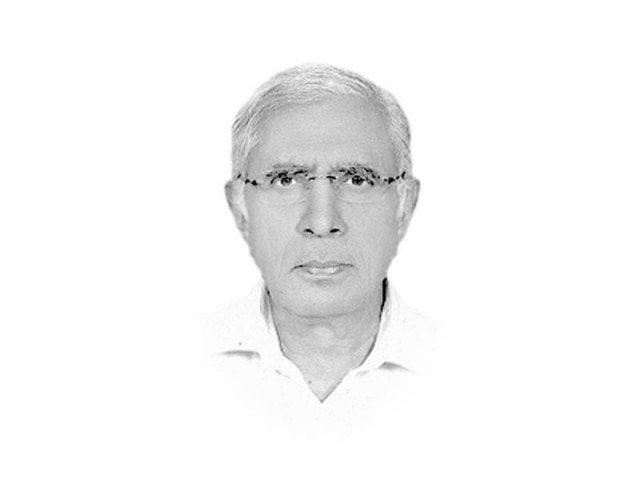The deadly trust deficit
Since its inception Pakistan has had highly troubled relations with its northwestern neighbour

The writer served as executive editor of The Express Tribune from 2009 to 2014
Since its inception Pakistan has had highly troubled relations with its northwestern neighbour. The blame for complicating the bilateral relations between the two neighbours can be attributed squarely to both Pakistan and Afghanistan.
Islamabad had allowed the hostilities it had nursed against the Northern Alliance (NA) during the war between the Taliban regime and the NA troops to spill over to the aftermath emerging from the defeat (in November-December 2001) of the Afghan Taliban at the hands of invading US troops which had entered Afghanistan led virtually by the NA troops.
Instead of facilitating a grand national reconciliation inside Afghanistan among various warring factions Pakistan started providing the fleeing Taliban fighters safe havens in the border region, including Fata. This was done protectively fearing perhaps that an NA-dominated Kabul government would quickly team up with India to militarily squeeze Pakistan.
On the face of it, the fear had seemed rather genuine because NA troops had been supported by India during its war against the Taliban regime. In order to pre-empt such a situation from emerging Pakistan began pushing for achieving the so-called strategic depth in Afghanistan vis-à-vis India. To turn this dream into reality Islamabad felt it needed to get the Taliban back in the saddle in Kabul.
This led both Kabul and Washington to accuse Pakistan of playing a double game and also that Islamabad was providing sanctuaries to Afghan Taliban. Pakistan was also accused of looking the other way when the Afghan Taliban began launching bloody campaigns against the Kabul regime from the safety of Pakistan’s border areas.
In retaliation the Afghan government began wooing the TTP leadership. And when Mullah Fazllulah was chased out of Pakistan, Kabul provided him and his followers sanctuary and a free hand to launch terror attacks on Pakistan from these safe havens. A tit-for-tat, so to say.
India’s extensive economic and strategic engagements in Afghanistan have further widened the trust deficit between the two countries. This has led to reduction in the bilateral trade, closure of the border, enforcement of strict visa regimes and scaling down of people-to-people contacts.
An attempt to reduce the mistrust was made in May this year when the two countries operationalised a joint framework for peace, the Afghanistan-Pakistan Action Plan for Peace and Solidarity (APAPPS). But this too has remained seemingly a tentative arrangement.
Islamabad and Kabul must realise that it is only by joining hands that they could keep their countries from falling prey once again to superpower rivalries which appear to be in the offing as both Washington and Moscow seem to be looking at the region once again to test their respective superpower ambitions.
A recent study conducted by the Pakistan Institute of Peace Studies points out that enhanced level of economic interdependency would enable both countries to listen to each other. “All the transit trade agreements between the two should be Afghan-friendly, as Afghanistan is a landlocked country. All trust-building initiatives, including APAPPS, should involve monitoring and reporting mechanisms both by the states and civil society.
“A joint strategy can be developed for counterterrorism, counter-radicalisation and increased collaboration.
“Afghanistan must ensure that aid it is getting from abroad does not go into the hands of non-state actors or it should not be used against Pakistan, which the latter accuses Afghanistan of. At the same time, Afghanistan and Pakistan should develop a water treaty.”
Published in The Express Tribune, November 17th, 2018.
Like Opinion & Editorial on Facebook, follow @ETOpEd on Twitter to receive all updates on all our daily pieces.















COMMENTS
Comments are moderated and generally will be posted if they are on-topic and not abusive.
For more information, please see our Comments FAQ